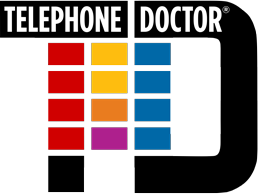By Nancy Friedman, Customer Service Expert, Keynote Speaker; President, Telephone Doctor Customer Service Training
There are many ways to sabotage a business. And chances are your staff is doing some of it, without you even knowing it. That’s the bad news.
The good news is here are five mainstream ways that can hurt your business. My guess is you’ve heard them yourselves.
Through our Telephone Doctor surveys, we bring you 5 issues that can sabotage your business without your even knowing it. If we can at least get some of these five issues handled, you’re in a much better position to serve your customers. Here we go:
- It’s Not Our Policy
This, unfortunately, is used more as an excuse than anything else. It’s a sure thing that the employee has not been shown how to explain a policy to someone. What happens then is it’s used more as something to say when they don’t know what to say. And the customer calls that an ‘excuse.’
When the customer hears “it’s not our policy,” they translate it to, “WHO CARES?” What a business needs to understand is no one but the management and staff really cares about your policies. Do you really think the customer says to himself or herself as they enter into or call your place of business, “Gee, I wonder what their policy on this is?”
All this being said, there are companies that do have policies that make it more difficult to work with than others. So here’s a suggestion: Decide on your policy, then work as a team with your staff to find a positive way to explain it to the customer. Otherwise, it’ll be the customer’s policy not to do business with you!
- It’s Not My Department
Well, then whose is it? Remember one of the Telephone Doctor mottos: Tell the customer what you do, not what you DON’T do. If someone mistakenly gets to your extension and asks for something that you don’t handle, it’s more effective to say, “Hi, I work in the paint department. Let me get you to someone in the area you need.” Much better than telling someone it’s not your department. (Let’s not say, “YOU have the wrong department.” Take full responsibility with the “I” statement.)
- My Computer’s Down
Yeah, yeah, yeah. We’ve all heard that one. And ouch! That one hurts because there are still many customers who remember the days BEFORE the computer. My goodness, how did we ever survive? Sure it’s easier to have the computer, but believe it or not, hundreds of thousands of businesses were born and raised on 3 x 5 cards or some other method of a data base.
When your computer crashes, this sounds so much better: “Happy to help. It may take a little longer as I’ll need to do everything longhand. Our computers are currently out.” This way you’ve still explained what happened and they’ll have a little more compassion as you’ve offered assistance and didn’t blame the computer. You can still, in all probability, help or at least get the ball rolling.
- I Wasn’t Here That Day (or I was on vacation when that happened)
This one really makes me laugh. I don’t remember asking them if they were there that day. Do you really think the customer cares if you weren’t around when their problem happened? Honestly, they don’t. So that’s not even an issue to discuss. Just hit the problem head on – apologize without telling them where you were (or weren’t). Remember, you ARE the company whether you were on vacation or not when the issue happened.
- I’m New
SO? OK, you’re new. Now what? Does ‘being new’ allow you to be anything but super to the customer? When the customer hears this sabotaging statement, do you really think they say: “Oh, so you’re new? So that’s why I’m getting bad service? Well, then that’s okay.”
Even if you are new, the customer believes you should know everything about your job.
Here’s the Telephone Doctor technique on this one. You can tell the customer, “Please bear with me, I’ve only been here a few weeks. I can help you; however, it just might take me a bit longer.” Taking responsibility is one of the ways to help. (And it will buy you time plus a bit of sympathy.) For whatever reason, hearing the short LENGTH of time you are with the company means more to the customer than, “I’m new.” Remember to state the length of time. It’s a credibility enhancement. “I’m NEW” is a credibility buster.

